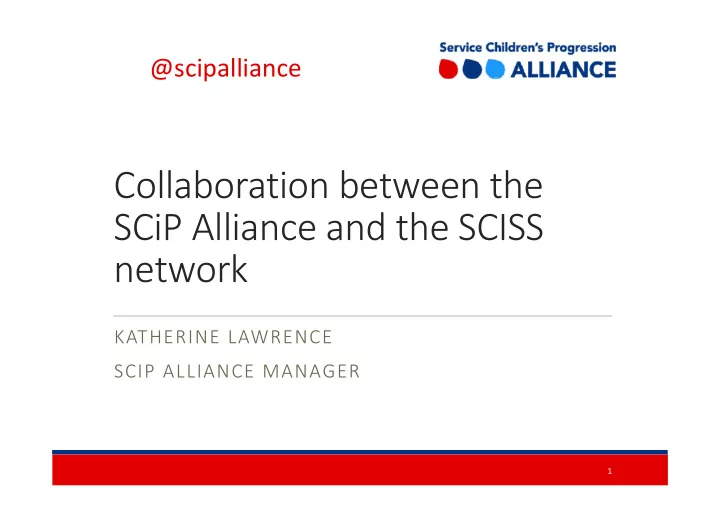

@scipalliance Collaboration between the SCiP Alliance and the SCISS network KATHERINE LAWRENCE SCIP ALLIANCE MANAGER 1
What makes service children great potential HE students? 2
The challenge Around 4 in 10 children from military families who have the ability to go to university do not do so*. * McCullouch and Hall, 2016, Further and Higher Progression for Service Children, University of Winchester 3
The HE sector context c. £725 million expenditure on access, success and progression* New OFFA guidance includes: ‘Children from military families where they face specific issues that might affect their access to higher education.’ *OFFA 2015 Predicted to rise to £750.9 million in the academic year 2019-20
Champion the progression of the children of military personnel, so that they can make informed and confident transitions through further and higher education into thriving adult lives and careers. 5
The The SCiP SCiP Al Alliance liance pr provides ides A UK ‐ wide strategy A research hub and a practice hub An online resource A voice for service children and those supporting their progression
Collaboration SCISS is represented on the SCiP Alliance board and practice group The SCiP Alliance is represented on the SCISS NEAC Conference collaboration 7
Bespoke outreach Aspirational days creating links between children and schools Student ambassadors from service background The University of Winchester and Bath Spa University working with Hampshire County Council / North Yorks County Council: teacher CPD Children: ‘ Listening to 'grown up' service children talking about their experiences ’ Teachers: ‘ New ideas to take back to school ’
Get involved info@scipalliance.org / katherine.lawrence@winchester.ac.uk 9
Recommend
More recommend